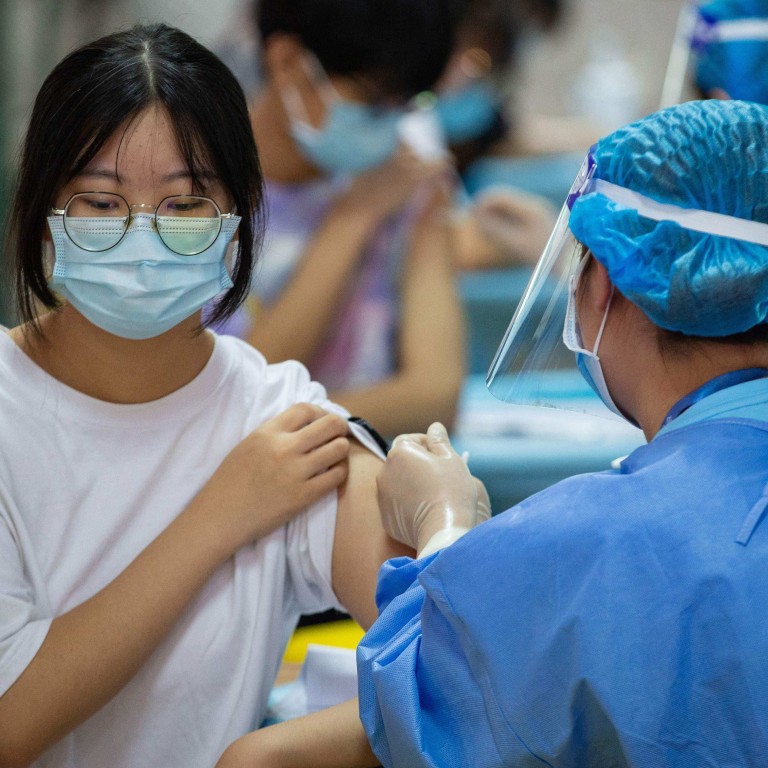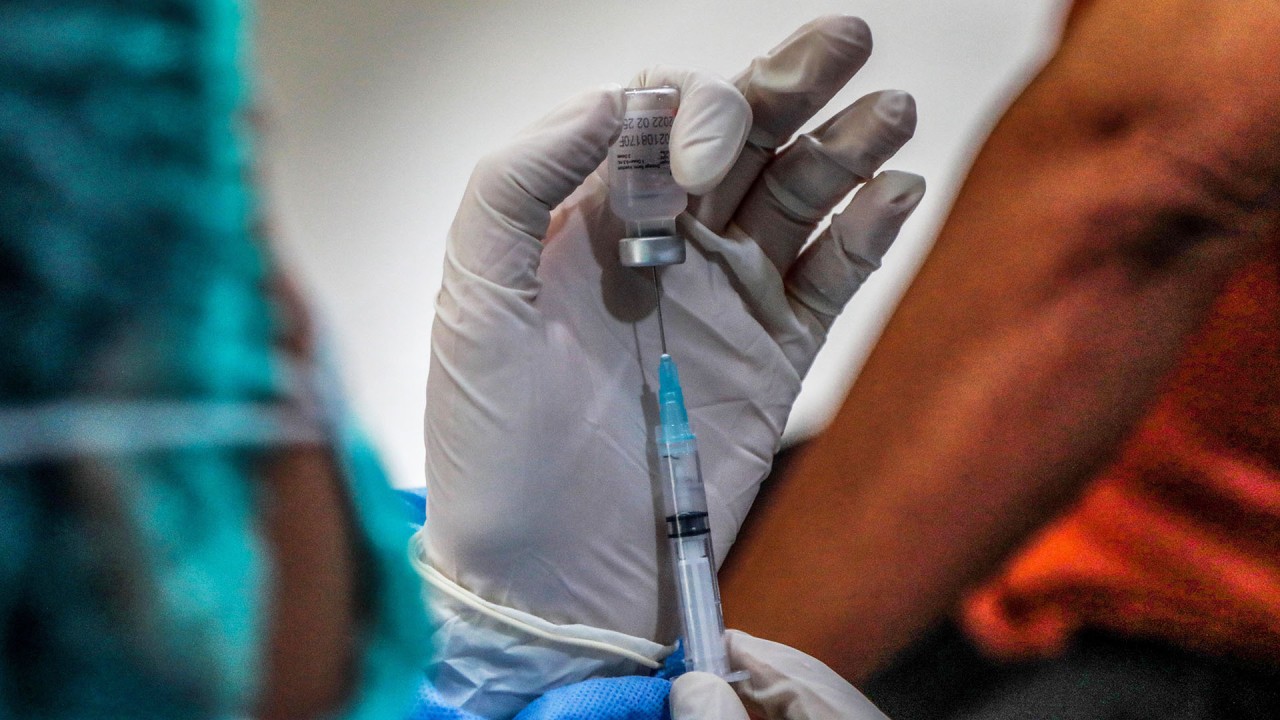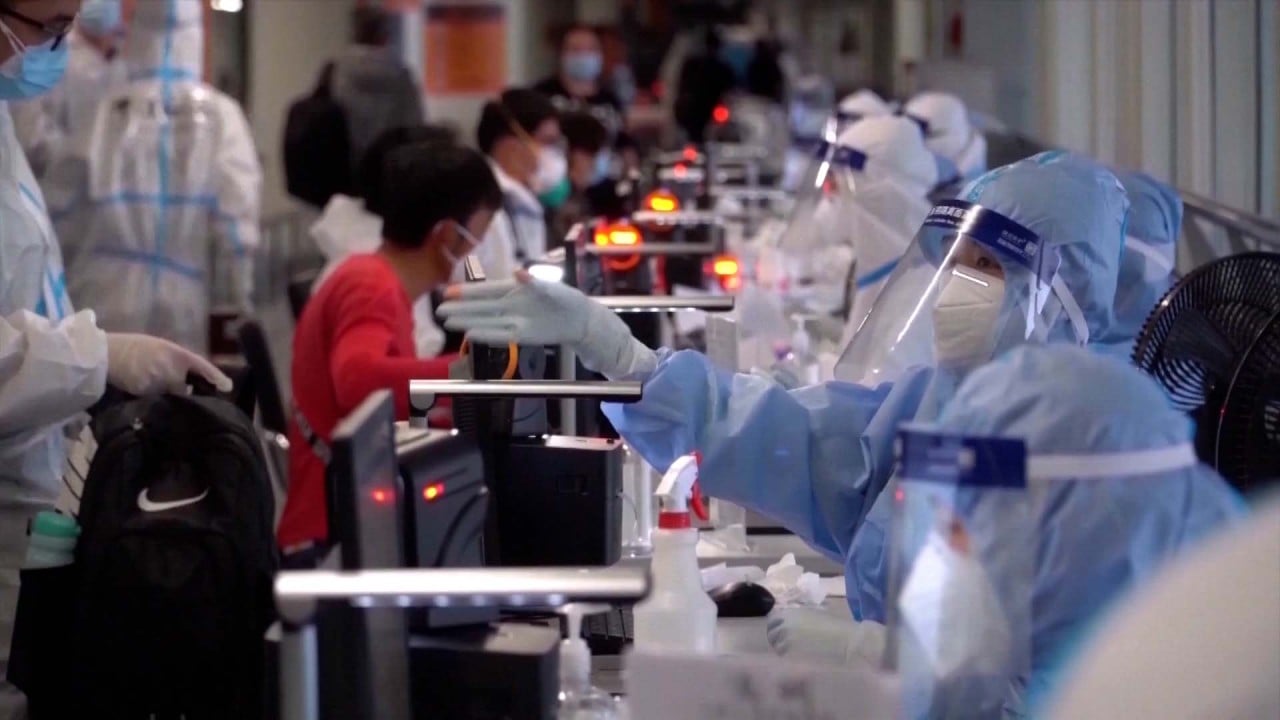
Omicron: China’s Sinovac says third shot could help fight variant, as Hong Kong study fails to reveal antibodies with two
- About 94 per cent of people with a third dose had detectable levels of antibodies, Sinovac says, after HKU study finds none in 25 people on two-dose regimen
- The Pfizer-BioNTech vaccine also showed a ‘significant’ immune response drop and boosters may be needed for both, researchers said
Beijing-based Sinovac on Wednesday responded with a statement saying a third shot of its CoronaVac vaccine could improve its ability to neutralise Omicron, citing its own laboratory studies.
Sinovac and world’s Covid-19 vaccine makers ‘ready’ to produce Omicron jab
The company did not provide details on the levels of virus-fighting antibodies produced or how long after vaccination the measurements were taken, but said some 94 per cent – or 45 out of 48 – people who had taken a third dose had detectable levels.
While it is difficult to compare studies which may use different methods, the company’s findings contrasted with those released on Tuesday in a preprint paper by the HKU researchers.
The university study also examined neutralising antibodies, one arm of immune response that serves as a rough marker for protection against infection.
Of 25 people who received a full two-dose course of CoronaVac, none were found to have detectable levels of neutralising antibodies, according to study author and top infectious disease expert Yuen Kwok-yung and his team.
For those fully vaccinated with Pfizer-BioNTech, five out of 25 people had detectable levels. But those levels were 35 to 40 times lower than against the original coronavirus strain, and saw “significant” reduction as compared to response to previous variants Beta and Delta.
“The public is advised to get a third dose of the vaccine as soon as possible while awaiting for the next generation of more matched vaccine,” they wrote.
The findings, which only looked at one aspect of immune system response, add to other emerging data suggesting that booster doses may be needed to enhance vaccine protection against the strain.
Omicron: what we know so far about symptoms, transmissions, vaccines
A number of other laboratory studies in recent days have suggested significant decreases in neutralising activity against Omicron versus previous strains, though experts believe existing vaccines will largely retain protection against severe disease and death.
Neutralising antibodies are used as a marker for vaccine protection against infection, but do not correlate clearly with vaccine effectiveness overall.
Other arms of the immune system are thought to play a role in protecting against severe disease for some vaccines, but are more difficult to measure.
Scientists say it is too early to tell if vaccines will need to be revised in response to Omicron, as they await real-world data on how well people are protected against the strain.
A number of major vaccine makers, including Sinovac and Pfizer-BioNTech, have said they are proactively working on developing versions of their vaccine tailored for Omicron to roll out if needed.



